
"It seems a snake has appeared in my school" DAMN THATS BADASS
Kakegurui isn’t like any anime I’d ever stumbled into—it doesn’t ease you in, doesn’t pretend to be about school, or romance, or anything ordinary. It grabs you by the throat in the first episode and says: here, this is a school where money is power, where your worth as a human being depends on how well you gamble, how far you’re willing to risk not just your future, but your pride, your body, your sanity. It’s not about cards or dice, it’s about stripping you bare, peeling back every layer until your soul is on the table. That’s Hyakkaou Private Academy. A place where kids of the elite sharpen their claws, and losing doesn’t just mean you’re broke—it means you become a “house pet,” collared, degraded, a servant to those who beat you. Watching it for the first time felt like someone injected adrenaline into my veins.
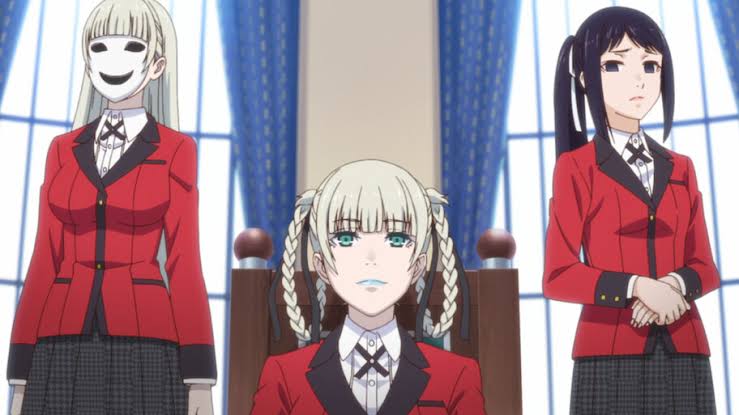
Then Yumeko Jabami enters. Sweet smile, large innocent eyes, and dressed like any other transfer student. You think you know the type. It is however on the time she is at a table that the room changes. She does not go there to win or to belong--she goes there because she lives to gamble. And by live I intend it in the most feral sense of the word. It is not about the money and even status does not matter to her. Her desire is danger, the adventure of putting all her money in the fire and whether she will make it out alive. How her voice drops when the game turns tense, how her face changes between cute and unhinged--each time it chilled me. She is frightening, however, she is appealing. You can’t look away.
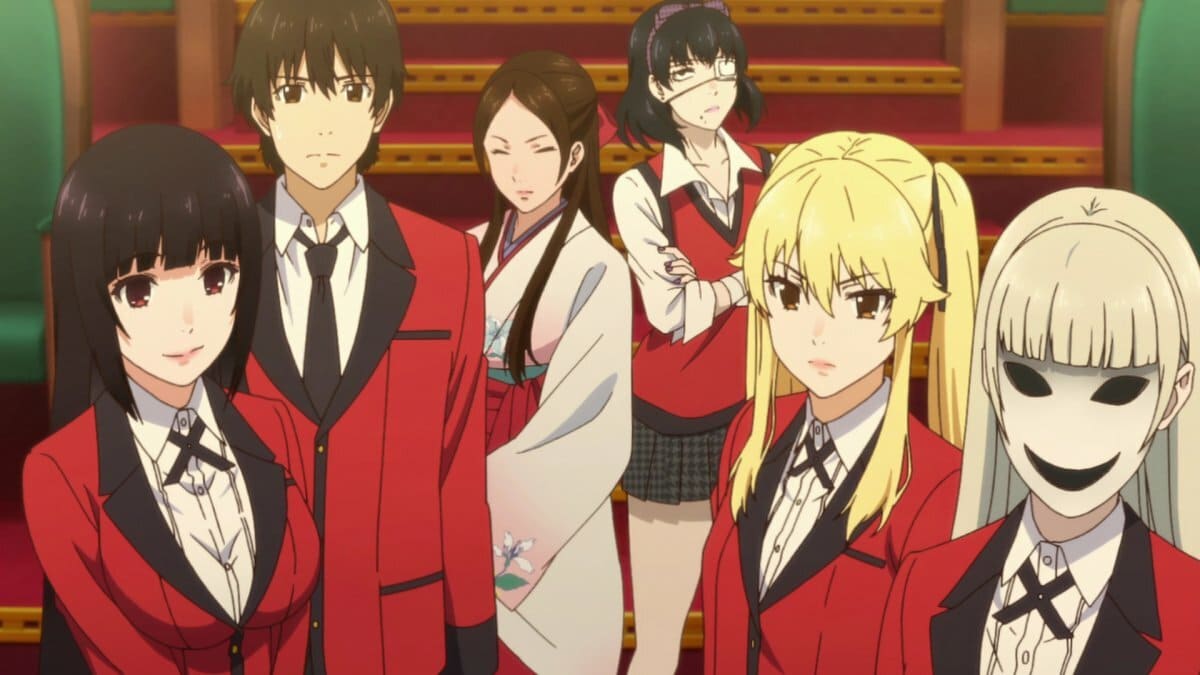
The match that struck me the most was the one when Yumeko confronts Mary Saotome. Mary had been Queen bee, prideful and inhuman, and turned house pets of the weak. It was blood boiling to see her smiling as she put down people. But you hear now Yumeko sitting on the other end of the table, and the air is nearly torn. The cards were not all that the game was: it was tearing Mary up and down the line. And when Yumeko tossed the table--literally, emotionally--you saw that Mary leaks, her entire character cracks as she gets her medicine herself. It was then that I realized Yumeko was not another protagonist, she was anarchy in a school uniform and she was going to tear down all levels in that academy.
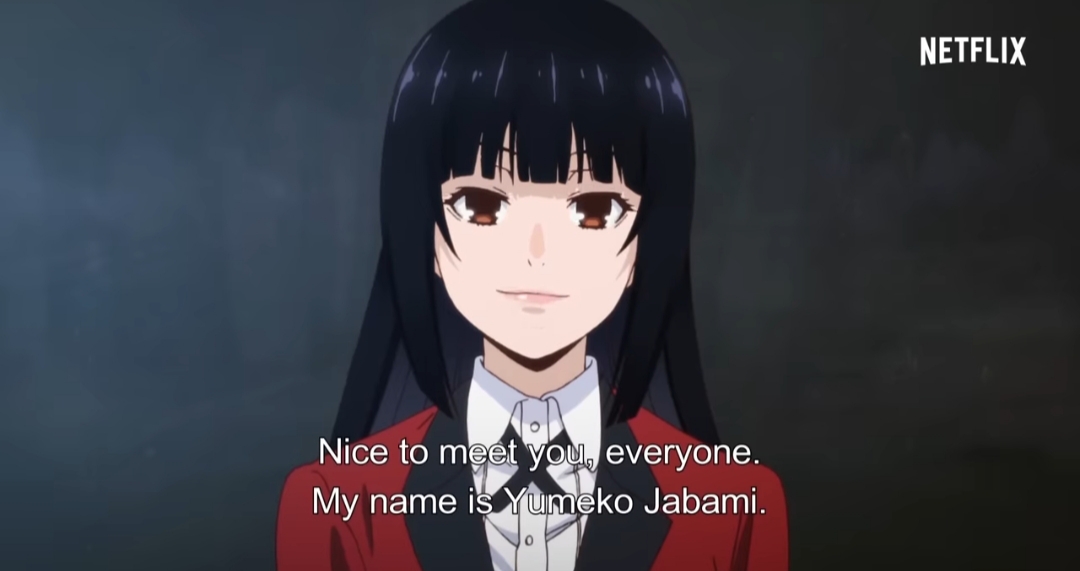
However, what lingered in my memory was not only the triumphs of Yumeko, but the fact that the show drives you through the most extreme depths of human desire. Similar to that game with Jun Kiwatari, the one who was so full of boast and virtue, who bet not only money, but also the danger of real injury. Yumeko didn’t flinch. She bent over it, almost thrilled at the risk about it, and then it struck me--she is not normal. She does not play dice to live, she plays dice to die. It is frightening--but it is sickening to see. You begin to ask yourself would I make it sitting opposite her? Would I bend or would I love the madness as well?
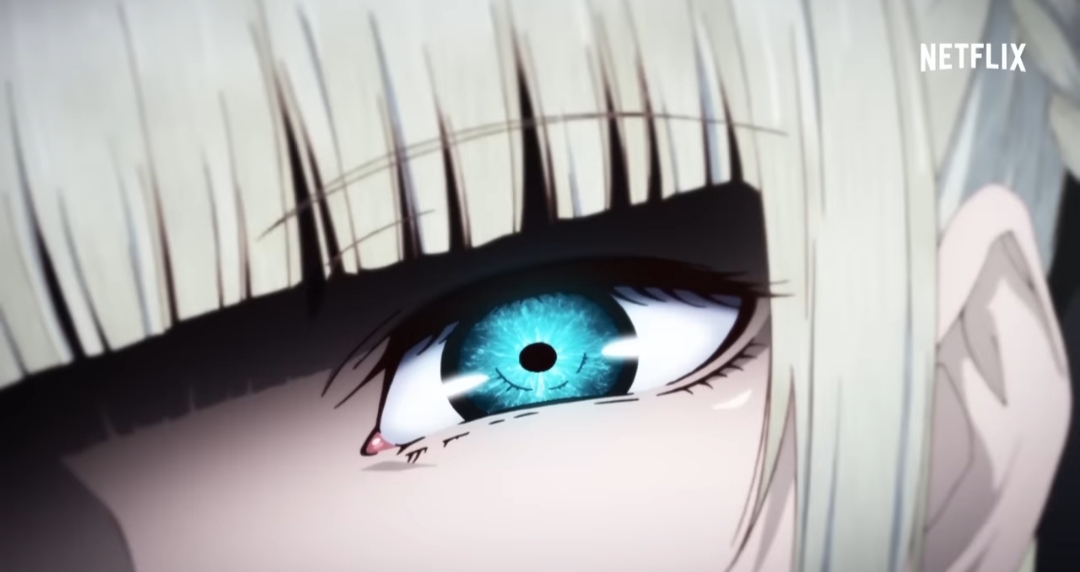
And then there is the boy, Ryota Suzui, who appears pathetic at first, being chained, shattered into a house pet. He ought to have been forgettable. But Yumeko takes him with her, not as an accomplice but as an eyewitness to her hurricane. And gradually you can see him transform. He is appalled at her, frightened by the daring she has, and yet is attracted by her boldness. He is a symbol of us, the audience it is, sucked down into her seriousness, not knowing whether to flee or to give up.
The escalation of each game is what makes Kakegurui so gritty, but not only in the terms of stakes, but also in the terms of psychological combat. The game with Itsuki Sumeragi, the nails scene--God, I will never forget that. Itsuki bets her own fingernails with a smile as though nothing, and then wets herself when Yumeko calls her bluff. It was more than a roll of dice, that was body horror hidden as student life. It turned my stomach, but I could not take my eyes off.
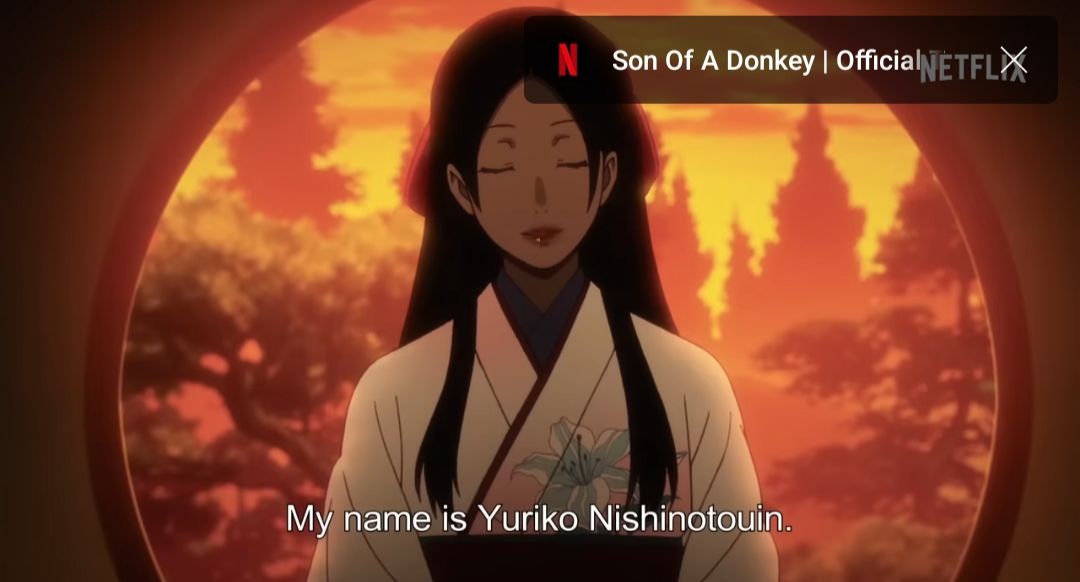
And then the Student Council. Oh, the Student Council. They do not merely have a lot of power, they are predators. The members are progressively more perverted and their games increasingly more insane. The Presidential Kirari Momobami, who is as icy in smile and as her eyes are incomprehensible, is the queen of the academy of a nightmare. She does not have to scream or to shout, her composure is more terrifying than any temper tantrum. Her playing around with Yumeko like it were her game board with the whole school, gave me chills. And Yumeko does not retreat--she laughs, she wallows in it. They are both electricity, as two storms come together.
What irked me was the fact that gambling is turned into a reflection of itself by Kakegurui. The game each character faces reveals their true personalities, Mary is arrogant, Itsuki is insecure to prove herself, Ryota is a coward, and Kirari is detached as a god. And Yumeko? The most terrifying reflection is that by Yumeko, as it is nothing more than sheer compulsion. She does not simply love risk--she must love it. It is an addiction, but even more than that, she is only really alive when she is standing on the verge of ruin. That is thrilling and that is also very disturbing.
This anime was not a relaxing one to watch. I could not simply put it on in the background. My heart surged at every episode. The sound effects, the clink of the coins, the ruffle of the cards, the silence before an insinuation, it all creeped under my skin. And the cartooning, the distortion of faces when the characters are not in control, the sweat, the bulky eyes--it seemed the entire thing was a horror show masquerading as a school play.
By the time the season wrapped up, I realized Kakegurui isn’t really about gambling at all. It’s about power. It’s about what people will do when they think they can’t lose, and how fast they crumble when the ground shifts. It’s about how thin the mask of civility really is when you strip people down to greed and fear. And Yumeko, she’s the catalyst. She’s not there to save anyone. She’s there to expose them, to devour the illusions, to drag everyone into her playground of risk.
And the wildest part? Watching her didn’t just terrify me—it made me want to play. That’s the dangerous magic of Kakegurui. It whispers in your ear: what would you risk, if everything was on the line? Would you wager money? Dignity? Your own body? And when you think about it too long, you start to understand Yumeko in a way that feels a little too close to home.